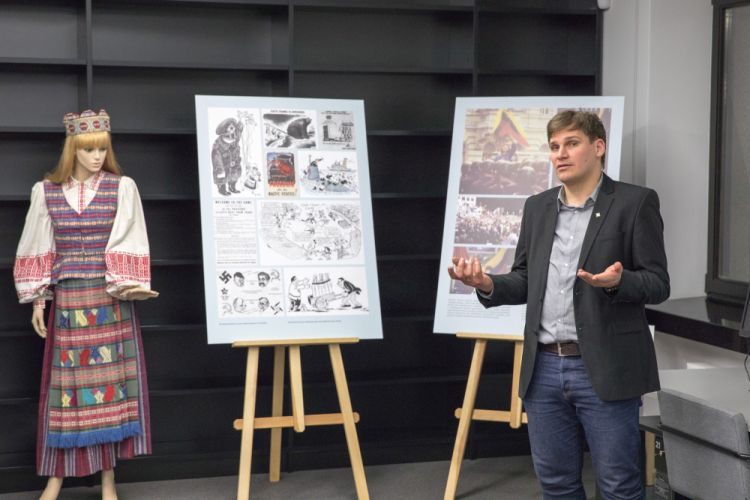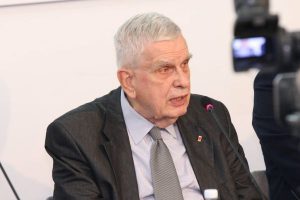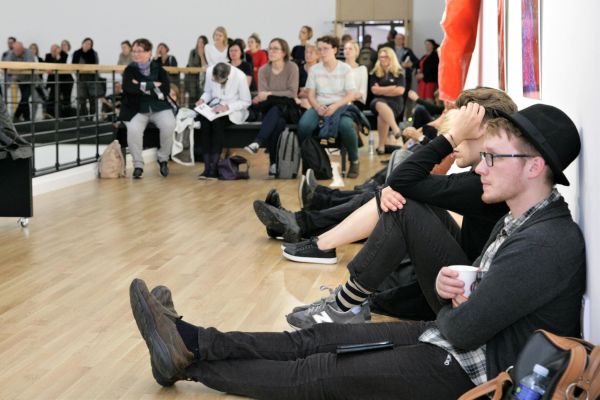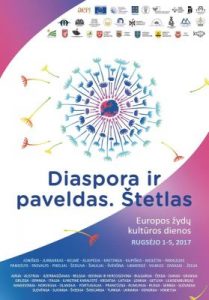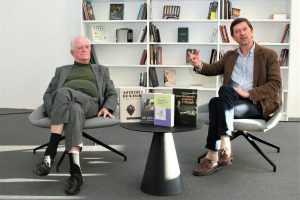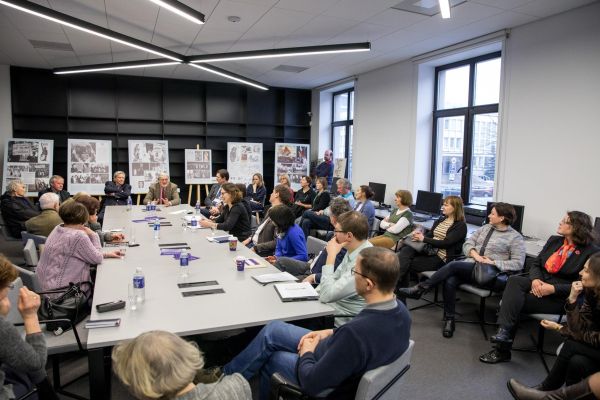
A round table discussion about Lithuanian heritage outside Lithuania organized by the Martynas Mažvydas National Library of Lithuania on January 26, 2018, was a good opportunity to assess not only the situation of the Lithuanian heritage abroad and to identify the challenges and problems, but also to talk about the achievements and the future work.
Augustinas Žemaitis, the leader of the project “Destination – America,” started the event. He told about a 16-day trip to the United States that he took last fall visiting Lithuanian places, recording material heritage and listening to the stories of local people of Lithuanian descent. Žemaitis, who has been interested in Lithuanian heritage outside Lithuania for five years, is convinced that his project is important not only to Lithuanians in the US, but also Lithuania. In his opinion, it is necessary to find new ways of preserving the Lithuanian heritage abroad. He suggested volunteering or tourism as good tools to do it.
Ramojus Kraujelis, the Chief Archivist of Lithuania, noted that today, unfortunately, there are no resources to describe Lithuanian heritage abroad. He commended the private initiative “Destination – America” and proposed to continue this project covering not only US but other countries which also have many objects of Lithuanian material culture. Continue reading “Lithuanian Heritage Abroad: Challenges and Achievements”

